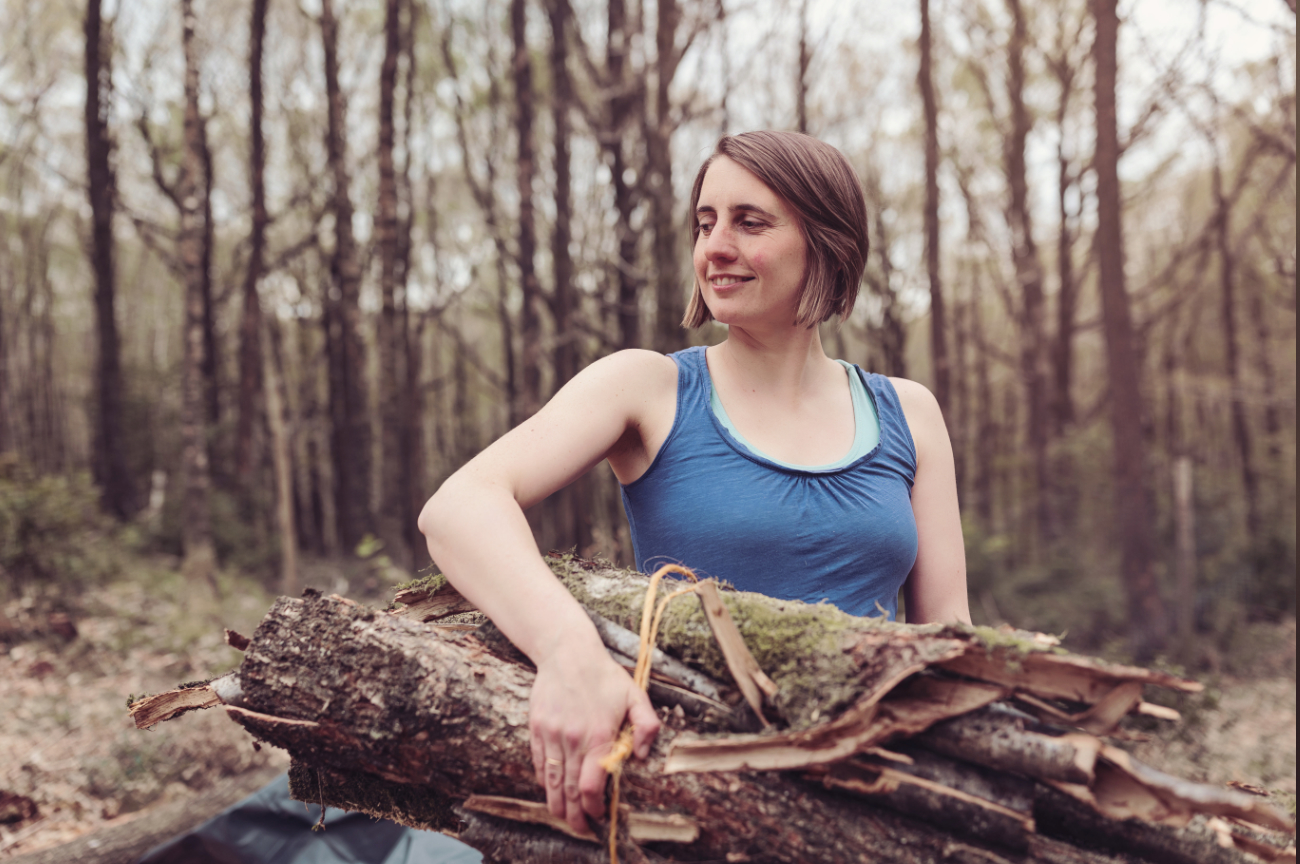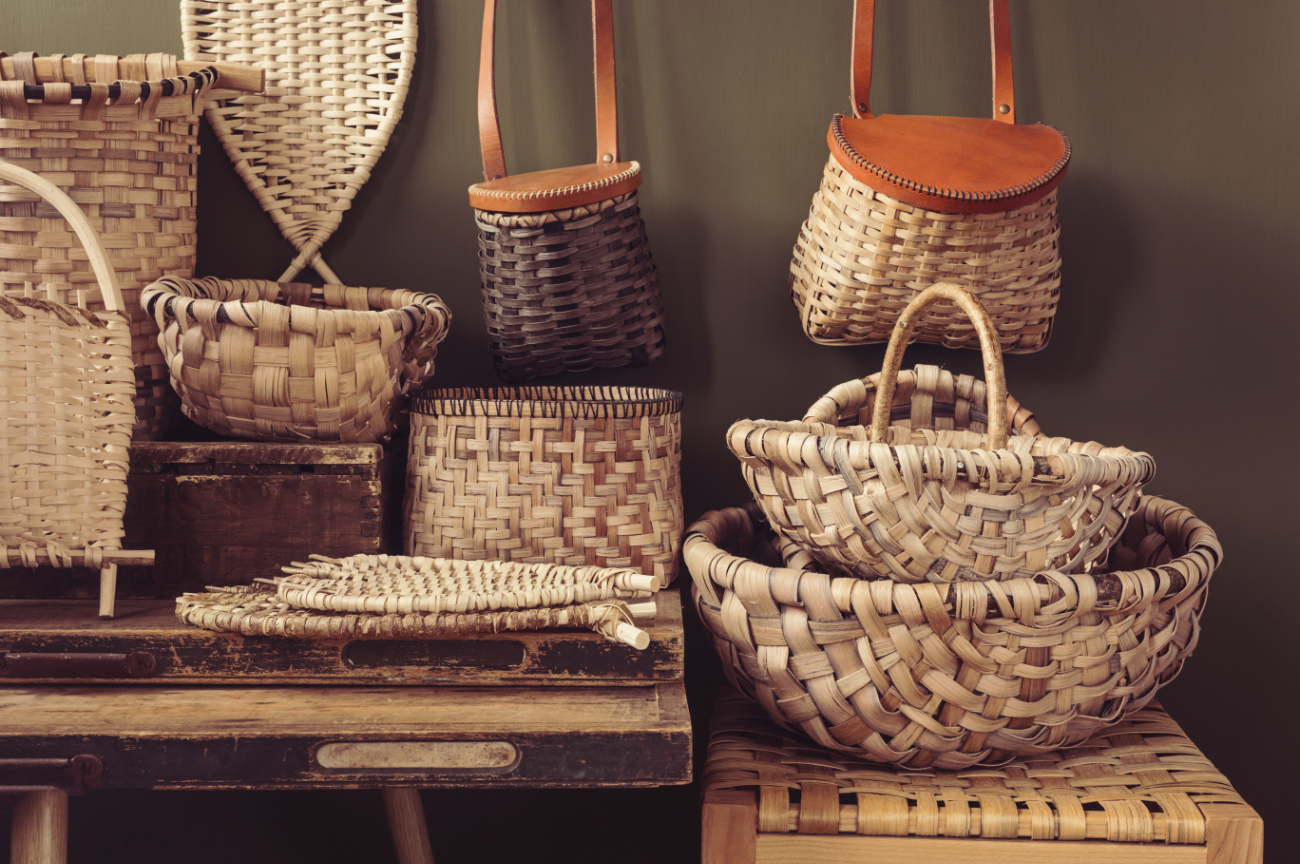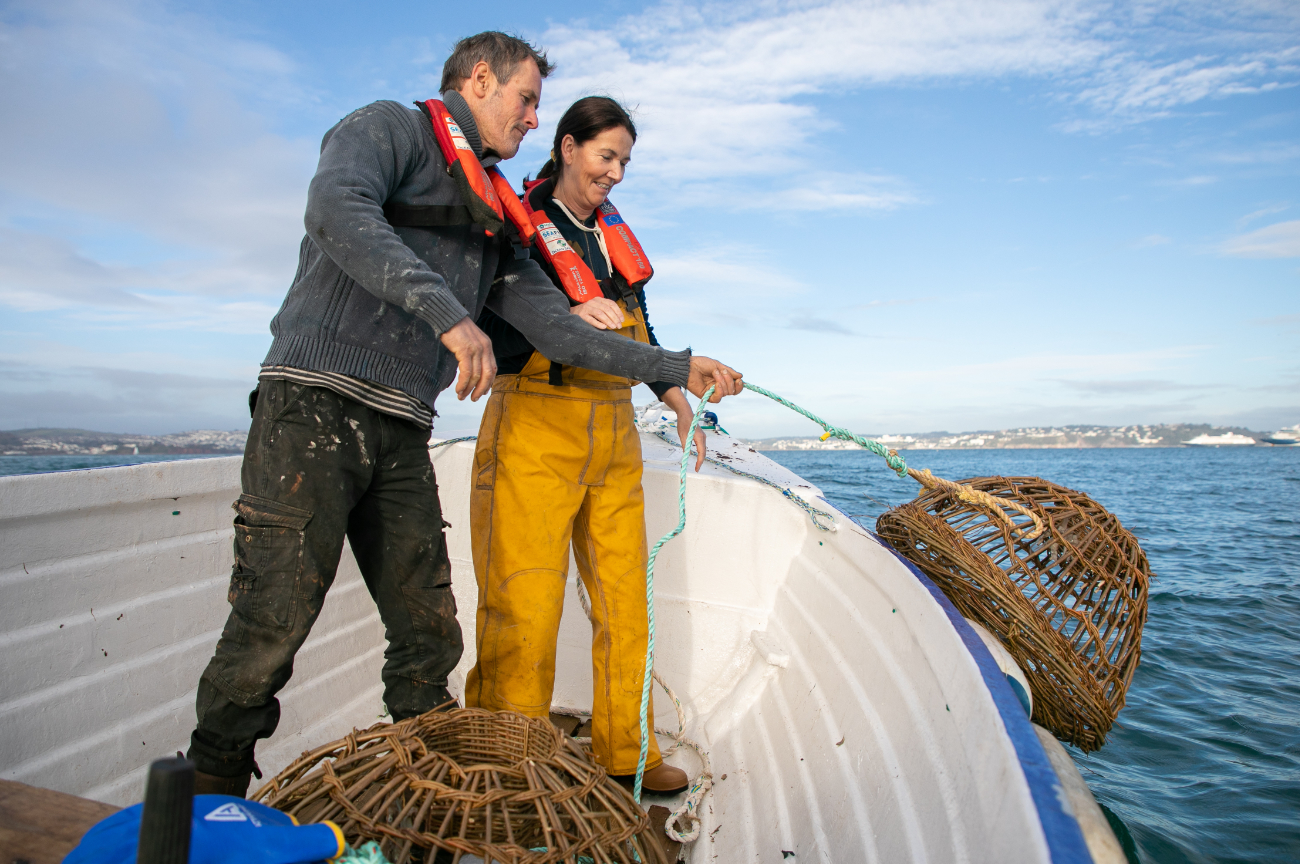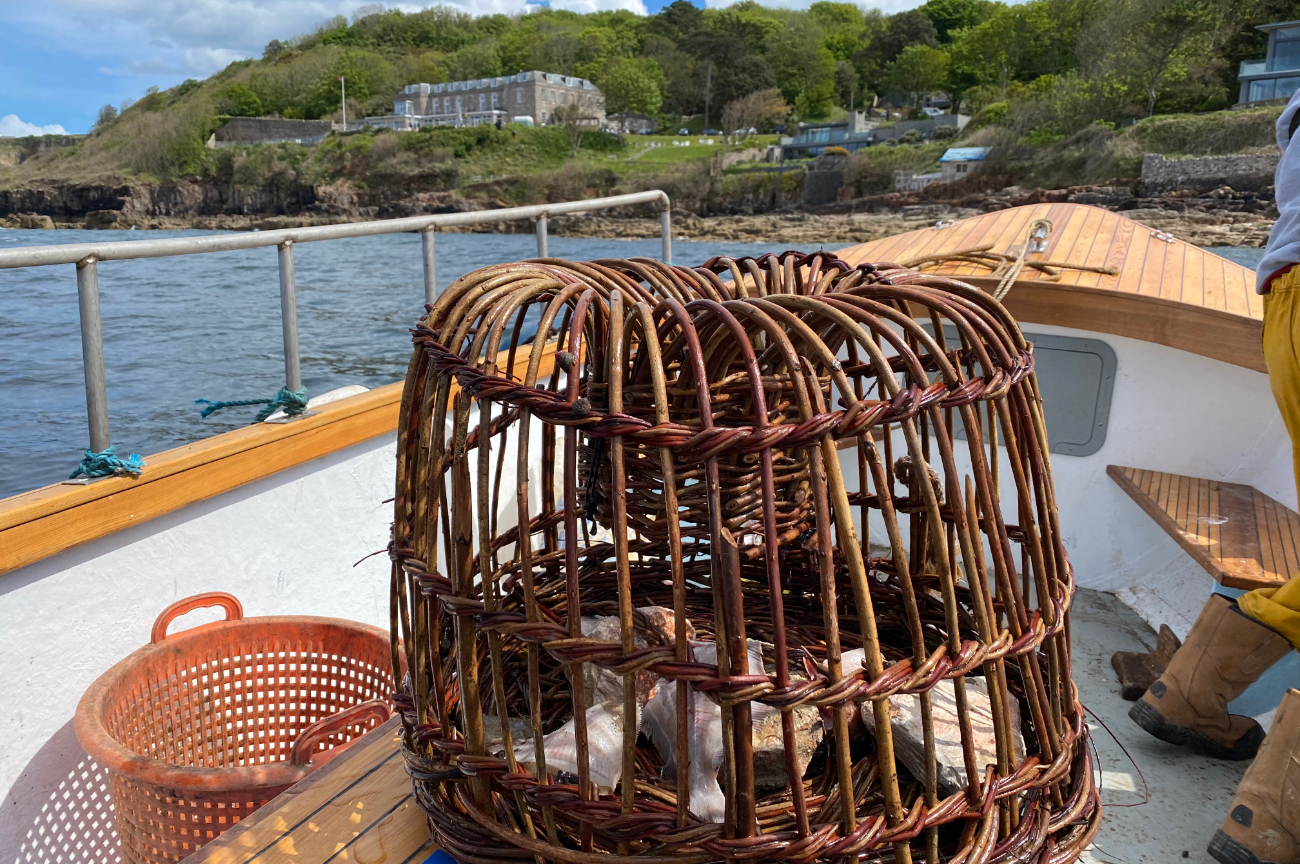Traditional withy pot and spelk basket making
Tiree Dawson
Reclaim meets the artisans working to keep their treasured and sustainable crafts alive and thriving
Lorna Singleton: Spelk basket maker
‘I’m one of only two full-time “swillers” left in the UK, practising the ancient skill of making traditional Cumbrian spelk baskets woven using coppiced oak. The craft goes back generations and involves stewarding, nurturing and maintaining the woodland to make sure that in the future I’ll have more trees from which to weave baskets.
‘I started weaving spelk baskets as part of a coppicing apprenticeship where I learned about traditional sustainable woodland management. I was working with swill basket maker Owen Jones, who taught me the craft. It took me seven years before I felt I knew what I was doing. Even now, there’s always something to learn. I’m the youngest person in the world making these baskets, so it’s a responsibility. It’s bigger than a person making a basket, it’s about keeping the cultural heritage alive.

Tiree Dawson
‘I love working in the woods and leaving the rest of the world behind. All you can hear is the birds. It’s a very elemental process – working with the trees, building the fire with waste from the baskets to boil and soften the wood, which produces an amazing apple smell. The colour of the oak is wonderful and the basket at the end is strong and beautiful.
‘The whole process is beneficial to my environment. The act of coppicing increases biodiversity in the woodlands because it lets more light into the ground in different stages which encourages the growth of bluebells, primroses and other plants – and that has a knock-on effect on butterflies, birds and insects. The trees are felled every 25 years to give them time to grow again; once they’re felled, I peel the bark off with a blunt tool and send it to a tannery in Devon which makes oak-bark tanned leather, which is also an endangered craft.

Tiree Dawson
‘I’m nostalgic for a way of life when everything was made from local resources and people knew more about the land – and when people generally had less. One of the reasons I got into this is because I can’t do anything that will have a negative impact on the planet. I hope that I’m a positive role model – making spelk baskets from local renewable wood using traditional skills and trying, from my workshop in the Cumbrian woods, to keep our cultural heritage alive.’
Sarah Ready: Withy pot maker
‘I’ve always loved and been heavily involved in the fishing industry in Brixham, Devon, where I live. I’ve been married to my husband, a commercial fisherman, for 32 years and over that time I’ve seen how difficult it is for fishermen, especially the smaller boats, to survive. I’m fascinated by fishing heritage and am fanatical about not letting the old skills, such as net and basket making, die out. That’s why I started making withy pots – lobster and crab fishing pots made from willow.
‘The craft goes back generations and originates in the southwest of the UK and Brittany, France. Each area has its own distinct pot design. There are very few people, perhaps four or five, still making withy pots for commercial purposes. Other people make withy pots for decoration, used in pubs or restaurants, but commercial pots use much thicker willow rods to help keep their shape in the water.
‘The old boys who have the traditional skills are gradually dying off and it’s thanks to Dave French, a fifth-generation pot maker, that I have learned the skills. I’ve met with as many pot makers as possible and have hours of video capturing how pots are made.

‘As well as the importance of keeping our cultural heritage alive, withy pots are sustainable. The plastic pots used today won’t biodegrade and, if lost in the sea, will keep on catching animals, whereas withy pots will biodegrade.
‘I’m never going to earn a lot of money from withy pots – it takes me four hours to make one – but it’s about keeping the old skills alive and doing what I can to help. Since starting to make withy pots, I’ve been contacted by other people wanting to make them, so I’ve started running courses too.

‘I’m keen to discover more about fishing in an environmentally friendly way. We’ve just been awarded funding to build the first electric fishing vessel, powered by battery and solar panels, and as part of that project we will provide data about the costs of using sustainable gear to catch lobsters.
‘I get restaurants in London wanting to buy our sustainably caught lobsters but, from my point of view, by the time they’re caught, packaged and have travelled 150 miles, it defeats the object. I want to sell them locally to keep the food miles down. It’s hard work and fishing can be both harsh and kind on the same day, but I love it. Keeping the craft of withy pot making alive is one way of helping to celebrate its important heritage.’
Before you go...
...fancy automatic entry to all future competitions?
Simply register online today for FREE and you will get:
Automatic entry to all current and future competitions.
Access to Reclaim Inspiration - an online visual pinboard for saving all your home and style inspiration.
A regular newsletter of inspiration, ideas and advice.

Save all your articles in one place
Become a Reclaim Member to save all your home and style inspiration. Simply login or register online today for FREE and you will get:
Automatic entry to all current and future competitions.
Access to Reclaim Inspiration - an online visual pinboard for saving all your home and style inspiration.
A regular newsletter of inspiration, ideas and advice.








